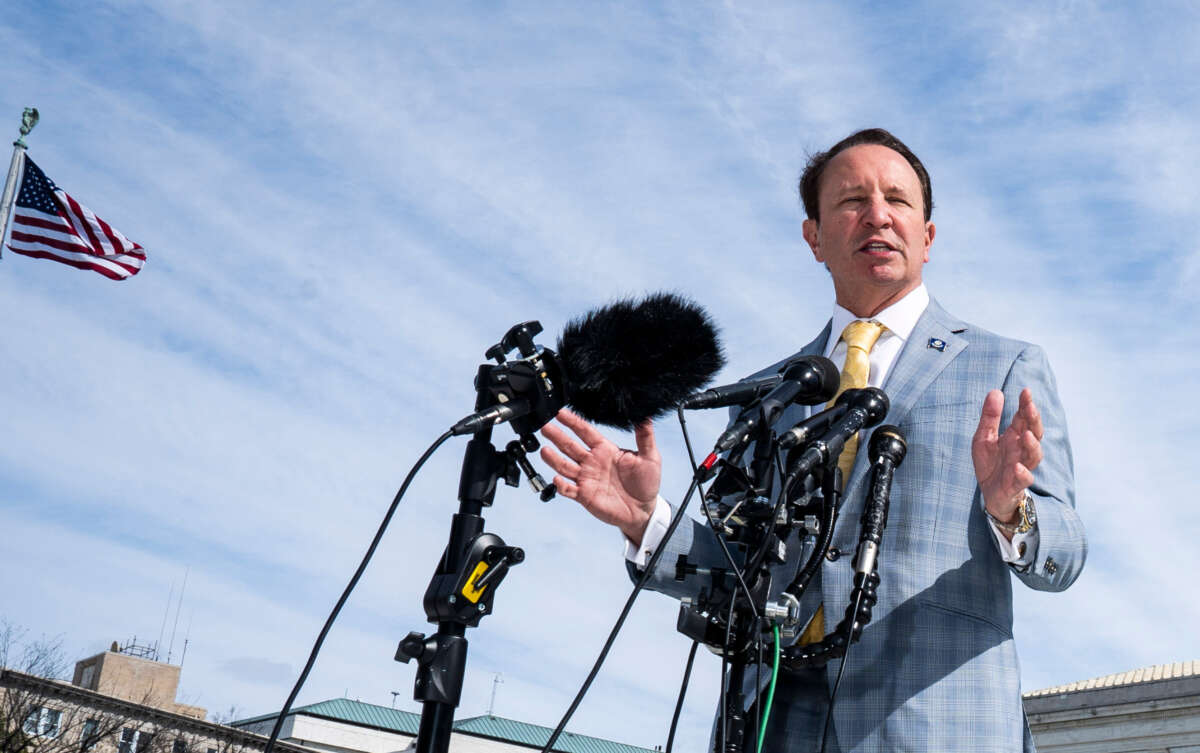On Wednesday, Louisiana Republican Gov. Jeff Landry signed into law a bill requiring every public school classroom in the state to prominently display the Ten Commandments.
The religious text — which is featured in all Abrahamic religions but which conservative Christians in the U.S. have tried to place in public and governmental settings for decades — contains rules on how to worship God, restrictions against polytheism, prohibition on stealing and murder, and injunctions against coveting property and people’s wives. Despite the clear religious nature of the Ten Commandments, Republican lawmakers are insisting that the new rule requiring the display is simply due to the historical value the religious rules have, with the text of the law noting it has been featured in U.S. schools in the distant past.
It’s unclear what relevance the historical nature of the Ten Commandments might provide to certain classrooms or subjects, including math and science, and the new law doesn’t make mention of other historical needs to display religious or non-religious texts, or the ability of teachers and schools to do so if they wish.
The law mandates that all public school classrooms — from kindergarten all the way up to publicly funded colleges and universities in the state — must display an 11-inch by 14-inch poster or display, showcasing the Ten Commandments in “large, easily readable font.” Schools must have the displays up by January 1, 2025.
During his signing statement on Wednesday, Landry made reference to biblical events to justify his endorsing the new rules.
“This bill mandates the display of the Ten Commandments in every classroom — public elementary, secondary and post-education schools — in the state of Louisiana, because if you want to respect the rule of law, you’ve got to start from the original lawgiver, which was Moses,” Landry said.
Last weekend, before he signed the bill into law, Landry also indicated that he was prepared to defend it, stating that he “can’t wait to be sued” over it.
Religious freedom and secular rights advocates indicated that was going to happen.
“The First Amendment promises that we all get to decide for ourselves what religious beliefs, if any, to hold and practice, without pressure from the government. Politicians have no business imposing their preferred religious doctrine on students and families in public schools,” read a joint statement from several groups, including the American Civil Liberties Union, the Freedom From Religion Foundation, and more.
The statute “is an exclusionary, heavy-handed measure that will make every student who is a member of a minority religion (or no religion at all) feel like an outsider in their own school and virtually invite litigation at taxpayer expense,” read a statement from The Center for Inquiry, a secularist nonprofit organization, just prior to Landry signing the bill into law.
Any lawsuit that goes through federal courts would likely end up at the Fifth Circuit Court of Appeals, regarded as one of the most conservative districts in the U.S. From there, an appeal (which would likely happen no matter what outcome occurs) would go to the Supreme Court, which has shifted far to the right, including on matters relating to the First Amendment’s separation between church and state, over the past decade or so.
Recent undercover recordings of at least one conservative bloc member of the High Court, Justice Samuel Alito, reveal his desire to use the Court to push for a more religious society.
A journalist posing as a conservative backer of Alito’s posited that the Court should “return our country to a place of godliness” at an event featuring several justices earlier this month. Alito confirmed he felt the same way.
“Oh, I agree with you,” the associate justice, who had a Christian nationalist flag fly outside his vacation home last summer, said in response. “I agree with you.”
Press freedom is under attack
As Trump cracks down on political speech, independent media is increasingly necessary.
Truthout produces reporting you won’t see in the mainstream: journalism from the frontlines of global conflict, interviews with grassroots movement leaders, high-quality legal analysis and more.
Our work is possible thanks to reader support. Help Truthout catalyze change and social justice — make a tax-deductible monthly or one-time donation today.
